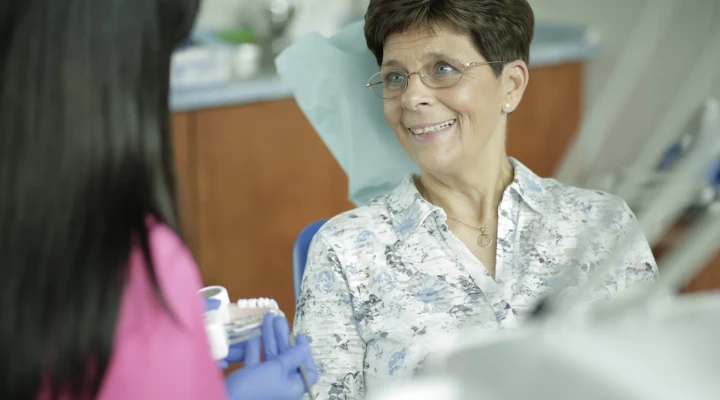The menopause causes a reduction in the flexibility of the connecting tissue system of the whole body, and this process can result in tooth loss. Losing your teeth is not only a cosmetic issue, but can also cause pain in different parts of the body due to the loss of balance in the body.
Tooth loss during the menopause is caused not only by osteoporosis, but also by an overload caused by the reduction in the flexibility of connecting tissue. The menopause doesn't just result in a loss of flexibility in the connective tissue on the surface – i.e. the skin – but also in deeper layers, too. One example is in the capsules and ligaments of the temporomandibular (TMJ) joint. This means that the two temporomandibular joints can try to compensate and become asymmetrical, resulting in an unbalanced chewing function. The function of the temporomandibular joint and its precise meeting point with the teeth are incredibly important: if they are correct, it prevents the teeth being overloaded. If not, the support system of the teeth – the connective tissue fibres that hold the root to the bone – can become damaged, and the resulting overload exerts excessive pressure on the bones, which can lead to loosening teeth and teeth loss.
Many dental issues caused by the menopause can be treated effectively if they are identified in time. In addition to a general annual dental check-up, we also recommend an expanded dental assessment for women aged 40 and over.





